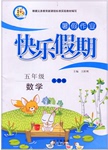题目内容
--- How much _________an iphone 5_________?
--- More than 5000 yuan.
A.is; cost B.does; spend C.does; pay D.does; cost
练习册系列答案
 一诺书业暑假作业快乐假期云南美术出版社系列答案
一诺书业暑假作业快乐假期云南美术出版社系列答案
相关题目
题目内容
--- How much _________an iphone 5_________?
--- More than 5000 yuan.
A.is; cost B.does; spend C.does; pay D.does; cost
 一诺书业暑假作业快乐假期云南美术出版社系列答案
一诺书业暑假作业快乐假期云南美术出版社系列答案